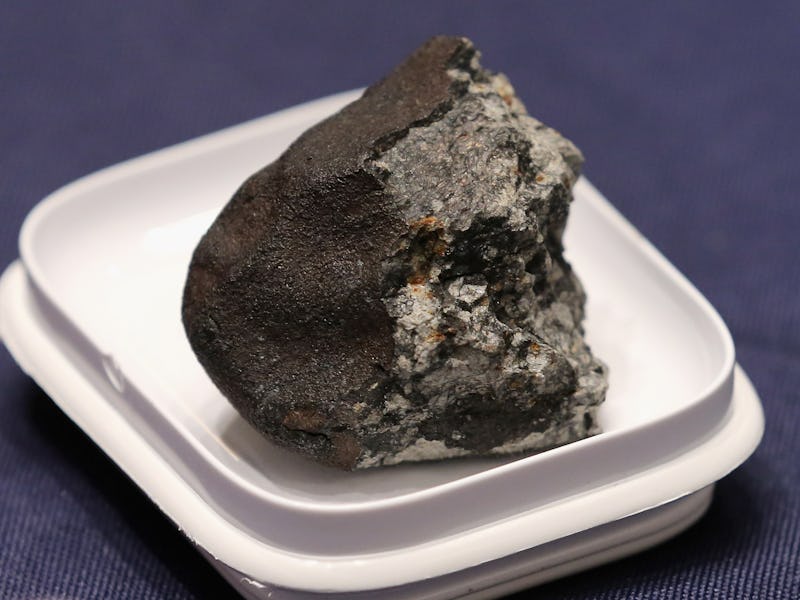A Meteorite Probably Didn't Kill That Man in India
An explosion that killed a bus driver looks to have other causes.

Did you hear about the man in India who was killed by the explosion from a meteorite crashing into the ground on Tuesday? Do you remember hearing that it would be the first confirmed time in human history that a meteorite caused a person’s death?
Well, it probably wasn’t a meteorite that caused the explosion.
“Considering that there was no prediction of a meteorite shower, and there was no meteorite shower observed, this certainly is a rare phenomena if it is a meteorite,” Professor G.C. Anupama, the dean of the Indian Institute of Astrophysics, which is responsible for analyzing samples of the suspected meteorite, told the The New York Times in a telephone interview.
NASA also doused the meteorite flames theory, releasing a statement saying the incident was more consistent with a “land-based explosion.” Lindley Johnson, NASA’s planetary defense officer, may have the world’s coolest professional title; he also doubts whether the object was likely a meteorite, telling the New York Times that death by meteorite is just too unlikely to take seriously.
Kamaraj, the deceased, was felled by an apparent explosion on the campus of Bharathidasan Engineering College in Vellore. Investigators reported finding only a small blue rock in a crater 5 feet deep and 2 feet wide, with no trace of man-made explosives. Tamil Nadu’s chief minister released a statement, declaring that “a meteorite fell within the college premises.”
Said Johnson, the NASA official: “There have been reports of injuries, but even those were extremely rare before the Chelyabinsk event three years ago.” A meteorite lit up the skies over Chelyabinsk, Russia back in 2013 — that’s a chunk of it at the top of this story — causing more than 1,200 injuries (no deaths) mostly as it blew out windows during its fall.
The other possible meteorite death on record happened in 1825, also in India; the role of any space debris was unconfirmed. So rest tight. Your odds of getting hit by a meteorite remain 20,000,000,000,000 to 1. Or, to coin a term, astronomically small.
Planetary defense has become a more pressing issue on many people’s minds since the Chelyabinsk meteor, which exploded with 20 to 30 times the force of the atomic bomb dropped on Hiroshima, Japan in 1945. Luckily, our atmosphere took the hit for us, but it certainly struck a chord with many fearful Earthlings.
Since then, NASA has announced greater efforts to monitor near-Earth objects (NEOs). Earlier this week, the agency announced that the James Webb Space Telescope, the most powerful space telescope ever, will be able to track up to 75 percent of NEOs as well as almost all objects that are beyond Mars. It launches in 2018.
So Kamaraj’s death remains a mystery. We just know it’s a case for CSI, not NASA.